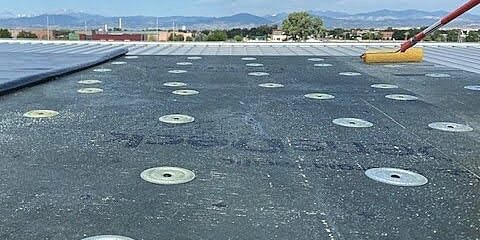There are several reasons why water is leaking through your commercial roof. Even with routine maintenance, harsh weather conditions could result in a broken roof, leading to leaks and water damage. Here are some of the common causes of those leaks.
Poor or Zero Drainage
When you hire contractors to install your roof, one of the things they need to plan for is where the water will drain. That’s where gutters, downspouts, drains, and scuppers come in. If those areas aren’t clearly designed, the water won’t drain properly. That could lead to standing water on your roof that could add extra weight to your building. Over time, the accumulated water could seep through and lead to structural damage.
Open Penetration
Your HVAC units, gas lines, drain pipes, and other systems pass through the membrane of the roof. These are vulnerable areas since they’re susceptible to leaks. These could be properly sealed, though, during the installation. If any of these systems are the cause of the leaks, hire repair experts right away. Look for a service provider that offers commercial roof repair in Longmont, CO, to fix the problem.
Damaged Roof Flashings
Roof flashings are installed around conjoining areas like the chimney, roof edges, skylights, and interior walls. However, poor installation could lead to problems. Also, if the flashings have been there for years, aged metal flashing is more at risk of damage. Wind or temperature changes could break the material, resulting in water in your system.
Damaged Membrane
Commercial roof membrane is waterproof. Damage to the membrane, then could lead to numerous problems. The damage could be caused by anything from foot traffic, weather conditions, or mechanical damage. These situations will allow water to leak through the membrane. While a quick patch of the damaged area is a good stop-gap measure, it won’t stand up in the long term. You’ll need to talk to repair contractors about replacing the insulation or large pieces of the membrane so that the repairs will hold up.
Aged Roof
The age of your roof is also a factor. Roofing systems last for an average of about 15 to 20 years. While the lifespan varies, depending on the roof type, the longer your roof has been around, the more at risk it is of damage. While building codes for commercial facilities allow you to install up to 2 roof systems, that might not be a good idea since the added weight of a new system could further damage the existing structure. Talk to a roofing contractor about installing a new one.








